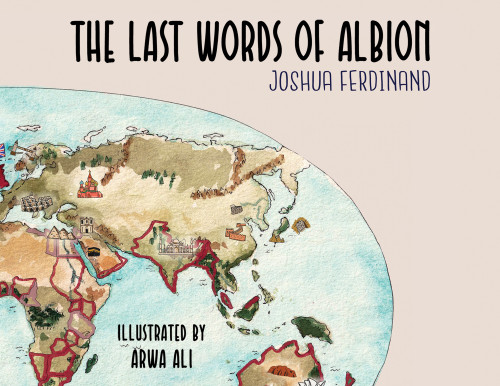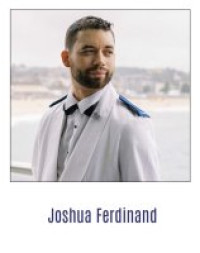
By: Joshua Ferdinand
*Available directly from our distributors, click the Available On tab below

Joshua Ferdinand, a former primary teacher, and current lecturer, has a diverse background in education, emergency healthcare, and the arts. With a BA in Drama from the University of Greenwich and extensive experience as a paramedic, Joshua’s unique career path has informed his holistic approach to teaching and learning. His debut children’s book, The Last Words of Albion, combines his passion for education and literary arts, offering young readers an engaging exploration of the British Isles through haiku. Joshua’s commitment to education, health, and the arts makes his work both inspiring and impactful.
In The Last Words of Albion, Joshua Ferdinand embarks on a poetic exploration of some of Britain's past, inviting us to reflect on those realities and the present condition of things. Presented in the form of haiku, the book looks into such incidents as the Great Fire and World War II and comments on such issues as unchecked human activities in nature and the consequent risk of environmental degradation. Haiku is a form of poetry whereby the first and last lines contain five syllables and the second line contains seven syllables. There are other characteristics associated with this poetic form, such as its usual emphasis on issues related to nature and being able to convey deep messages in a few words. I was really impressed with the way the author used this poetic form to explore the book's thematic preoccupations. First, I liked the symbolic, vivid, picturesque word choices, an example of which can be seen in this excerpt: "Bombs over England/Then the cities grow taller." Here, the word "bombs" represents an influential historical incident, and "the cities grow taller" paints a picture of the unfortunate loss and destruction it brought about. These word choices not only get us into critical thinking but also heighten the meaning and depth of the incident being discussed, all presented in a language less sensitive, making the whole thing a healthy exploration into our collective past and mistakes with a view to engineering some redemptive actions. I observed that Ferdinand is very intentional with this writing. He has a great way of presenting his message, sparking the readers' thought and imagination, and crafting an engaging discourse. These are obvious in the placement of the same poem at the beginning and at the end of the book and in the author's punctuation choice in the penultimate poem. Furthermore, the poems are embellished with relevant poetic devices. Take, for instance, the attribution of the action of licking to the inanimate object "flame." The illustrations were very rich and gave a raw visual representation of the themes. The paintings of Britain's rustic landscape and its condition following the era of industrialization were especially memorable. There is no complaint to report about this book. Considering the thought-provoking content, the advocacy for a safer and friendlier society, and the error-free text, I rate this book five out of five stars. The Last Words of Albion is recommended to readers aged nine to eleven. With some guidance, children below the age of nine will also find this book enlightening. I also think that adults who like haiku or poetry with impactful content will also enjoy it.
This is a great book for kids. I get the point of the haiku as it allows for breaks and is inclusive of neurodivergent kids. Well done mate.
I think the premise is ideal as a focus for young children to learn. I did sense a lack of a continuing thread as one illustration leads on to another, especially in the earlier part. The Haiku might not be as effective as a more conventional rhyming pattern and feels a bit too limiting in terms of its 'message'.
We use cookies on this site to enhance your user experience and for marketing purposes.
By clicking any link on this page you are giving your consent for us to set cookies